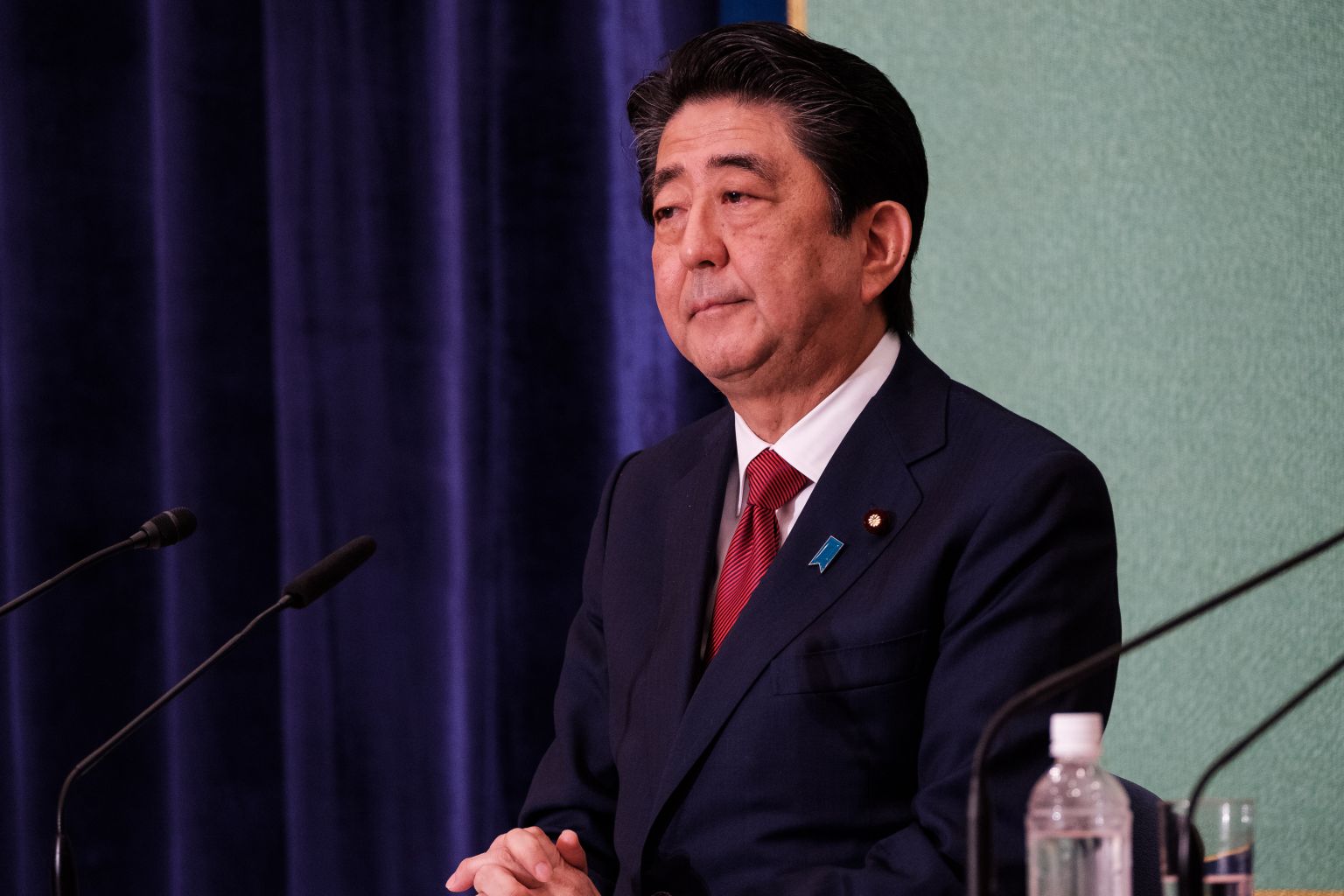Japan PM Abe speaks of '100-Year Life' social security system as centenarian numbers soar
Sign up now: Get insights on Asia's fast-moving developments

Japanese Prime Minister Shinzo Abe vowed to strengthen the country's social security system during an election debate on Sept 14, 2018.
PHOTO: EPA-EFE
Follow topic:
TOKYO - Japanese Prime Minister Shinzo Abe on Friday (Sept 14) vowed to strengthen the country's social security system to better prepare for the "100-Year Life" .
The vow was made on the same day the welfare ministry said the centenarian population hit a new record of 69,785.
Mr Abe was speaking during an election debate with former defence minister Shigeru Ishiba, who is challenging his bid for a historic third straight three-year term as leader of Japan's ruling Liberal Democratic Party (LDP). In Japan, the leader of the ruling party usually becomes the prime minister.
"I want to use the next three years to work towards realising a lifelong active society in which the elderly, who are abundant in experience and wisdom, can play an active role no matter how old they are," Mr Abe, 63, said during the debate at the National Press Club.
Among the measures being mooted is raising the retirement age to above 65, and to allow the elderly to defer their pension payouts beyond 70.
Japan, which has been struggling to lift its birth rates, is now the fastest-ageing society in the world. Its population has shrunk for seven straight years, to 126.7 million last year, and about one in four persons is now aged 65 and above.
The government's population research arm predicts that the number of Japanese citizens aged 100 and above will exceed 100,000 in five years, and 170,000 in a decade.
Mr Ishiba, 61, who also addressed the issue in the debate, called for more to be done to help uplift the elderly.
"There are six million elderly living alone, half of whom are surviving on income levels that are the same or lower than people on welfare protection," he said. "It is absolutely essential for Japan to give them hope by enacting work-style reforms so as to better tap their abilities."
On Friday, Mr Abe vaunted the track record of his economic policies dubbed Abenomics - combining ultra-loose monetary policy, fiscal stimulus and structural reforms - that has led to Japan's tightest job market in decades, fewer corporate bankruptcies, and rising tax revenue in both the national and municipal governments.
Yet Japan's fiscal health is the worst among major economies, and any economic reconstruction will have to be carried out amid ballooning social security costs.
The government has not hit its inflation target of 2 per cent. It has also not been able to meet its target for a budget surplus despite a planned consumption tax hike from 8 per cent to 10 per cent in October next year. Instead, in a controversial move, the government has put off attaining the surplus by five years, from fiscal 2020 to fiscal 2025.
"I don't believe (monetary easing) can continue forever," Mr Abe said during the debate. "But I can't say how it has to end now."
Mr Ishiba countered that Abenomics had only served to widen the chasm between Japan's wealthy cities and struggling rural areas.
"Many big companies and investors are getting more profits, but this has not spread to outlying regions," said the political firebrand, who represents the least-populated prefecture of Tottori and is seen as a salt-of-the-earth leader with rural interests at heart.
"We must make the most of the potential of Japan's rural areas, its small-and-medium-sized companies, as well as agriculture, forestry and fishery industries."
The two LDP politicians also locked horns over the Prime Minister's desire to revise the war-renouncing Constitution. Mr Abe has said that, if elected, he will put a proposal before Parliament by this year.
Mr Abe wants to erase any doubt about the legality of the country's military by codifying in writing that the so-called Self-Defence Force (SDF) "protects the peace and independence of Japan", whilst at the same time retaining the clause stipulating that the armed forces will "never be maintained".
Mr Ishiba, who is more hawkish, prefers a more drastic review and has said that there is no need to rush an amendment for the supreme law.
"I do not believe it is appropriate to willy-nilly revise the Constitution without a sincere explanation to each and every citizen," he said. "This is not a matter that can be solved simply by adding (the SDF) to the Article, without revising its essence."
Mr Abe, who has been premier since December 2012, is widely expected to win the internal party vote next Thursday (Sept 20), given his immense influence. This will put him on course towards becoming Japan's longest-serving prime minister.

